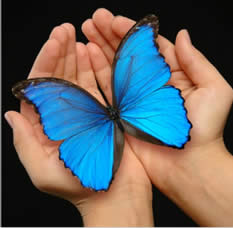The Cognitive Change Center & The Kraft Group provides varying levels of outpatient care. We are an alternative to an outpatient clinic, offering a personal and individualized approach.
Trauma-Focused Cognitive Behavioral Therapy (TF-CBT)
“The path isn’t a straight line; its a spiral. You continually come back to things you thought you understood and see deeper truths.”
Trauma-Focused Cognitive Behavioral Therapy (TF-CBT) is an evidence-based treatment for children and adolescents impacted by trauma and their parents or caregivers. Research shows that TF-CBT successfully resolves a broad array of emotional and behavioral difficulties associated with single, multiple and complex trauma experiences. This is the official TF-CBT National Therapist Certification Program, in which clinicians can become certified in the TF-CBT treatment model.
Integrative Treatment
Psychotherapy integration is characterized by dissatisfaction with single-school approaches and a concomitant desire to look across school boundaries to see how patients can benefit from other ways of conducting psychotherapy. Although various labels are applied to this movement — eclecticism, integration, rapprochement, prescriptive therapy, treatment matching — the goals are similar. The ultimate goal is to enhance the efficacy and applicability of psychotherapy.
Concisely put, integrative therapy tailors or customizes treatment to the individual patient and his or her singular context. Therapists do so by drawing on effective methods across theoretical schools and by systematically matching those on the basis of a multitude of diagnostic and particularly transdiagnostic patient features, such as stage of change, reactance level, culture, preferences, and coping style. This responsiveness applies to both treatment methods and therapeutic relationships and is rooted in evidence-based practice, which integrates the best available research with clinical expertise in the context of patient characteristics, culture, and preferences.
How does integrative therapy differ from ordinary eclecticism and theoretical pluralism? In at least four ways:
Direct research evidence of effectiveness (not anecdotal)Multiple diagnostic and nondiagnostic features of the patient (not simply diagnosis)Treatment method and therapy relationship (not only method)Matching across the course of therapy (not only pre-treatment)
Thus, therapists strive to create a new therapy for each patient. The result is a more efficient and efficacious therapy — one that fits both the client and the clinician.
Slow Stretch Yoga for Addiction Recovery
Join us for this new, slow, deep stretch yoga class. During this meditative class we will explore different aspects of recovery from different philosophical perspectives. This mindfulness based form of yoga relaxation will help students learn how to be present in the moment and more connected with their bodies in a healthy way. This will help improve their physical, mental, and emotional wellbeing.
Hypnotherapy and Neurolinguistic Programing
Addiction Treatment
Leigh Kolodny Kraft, of the Kraft Group offers drug addiction treatment can include medications, behavioral therapies, or their combination.
Drug treatment is intended to help addicted individuals stop compulsive drug seeking and use. Treatment can occur in a variety of settings, take many different forms, and last for different lengths of time. Because drug addiction is typically a chronic disorder characterized by occasional relapses, a short-term, one-time treatment is usually not sufficient. For many, treatment is a long-term process that involves multiple interventions and regular monitoring.
There are a variety of evidence-based approaches to treating addiction. Drug treatment can include behavioral therapy (such as cognitive-behavioral therapy or contingency management), medications, or their combination. The specific type of treatment or combination of treatments will vary depending on the patient’s individual needs and, often, on the types of drugs they use.
Children’s Clinical Services
Kids Camp at The Center
- Assessment
- Play Therapy
- Individual, Family, and
- Group Counseling
- Parent Education
- Community Education
- School Consultations
- Special Needs Parent
- Coaching Support
We will be offering a specialized group for kids ages 7-12 who are in families that struggle with alcohol and/or other drug addiction currently or in the past. We take the approach that addiction is a family issue and affects the entire family system. Our goal is to help children and parents open up the lines of communication and heal the hurt in their relationships. This is done through learning about addiction in a non-shaming age appropriate way. The children and families learn new tools and skills to recover as a family or maintain recovery for each individual.
Adolescent Services & Parent Education
Adolescent First Choice for Assessing & Addressing Adolescent and Young Adult High Risk Behavior
- High Risk Behavior Group
- Individual and Family Therapy
- DBT Skills Group
- Parent Group
- Parent Coaching
- Intervention Groups for
- Kids skating on the edge
- Substance Abuse Recovery
- Groups
- Comprehensive Substance
- Use Disorder Assessments
- Self Esteem Group
- Art Expression
Psychotherapy is to the mind what the immune system is to the body. It protects and strengthens. Psychotherapy is a discipline that draws on both science and art — knowledge of theory and research on one hand and literature, philosophy and esthetics on the other. Hard evidence lives side-by-side with intuition to capture the essence of who you are.
Psychotherapy is a conversation, but of a very different kind. My main approach to my work encompasses all theories of the mind. It is geared toward improving “mentalizing.” This means enhancing your ability to “understand behavior in terms of intentions — thoughts, feelings, beliefs, wishes and desires, so you can see yourself from the outside and others from the inside.” (Fonagy).
With an interactive process that focuses on exploration through active listening, and Addiction Counseling I try to understand the inner workings of your mind; to learn what has shaped you (personality, brain, family, culture) and how you learned to respond to the world in ways that have prevented you from thriving.
My work aims at elevating and understanding, awareness and mindfulness, which in turn allow for more adaptive perceptions and behaviors so your goals are met and the quality of your life is enhanced.


